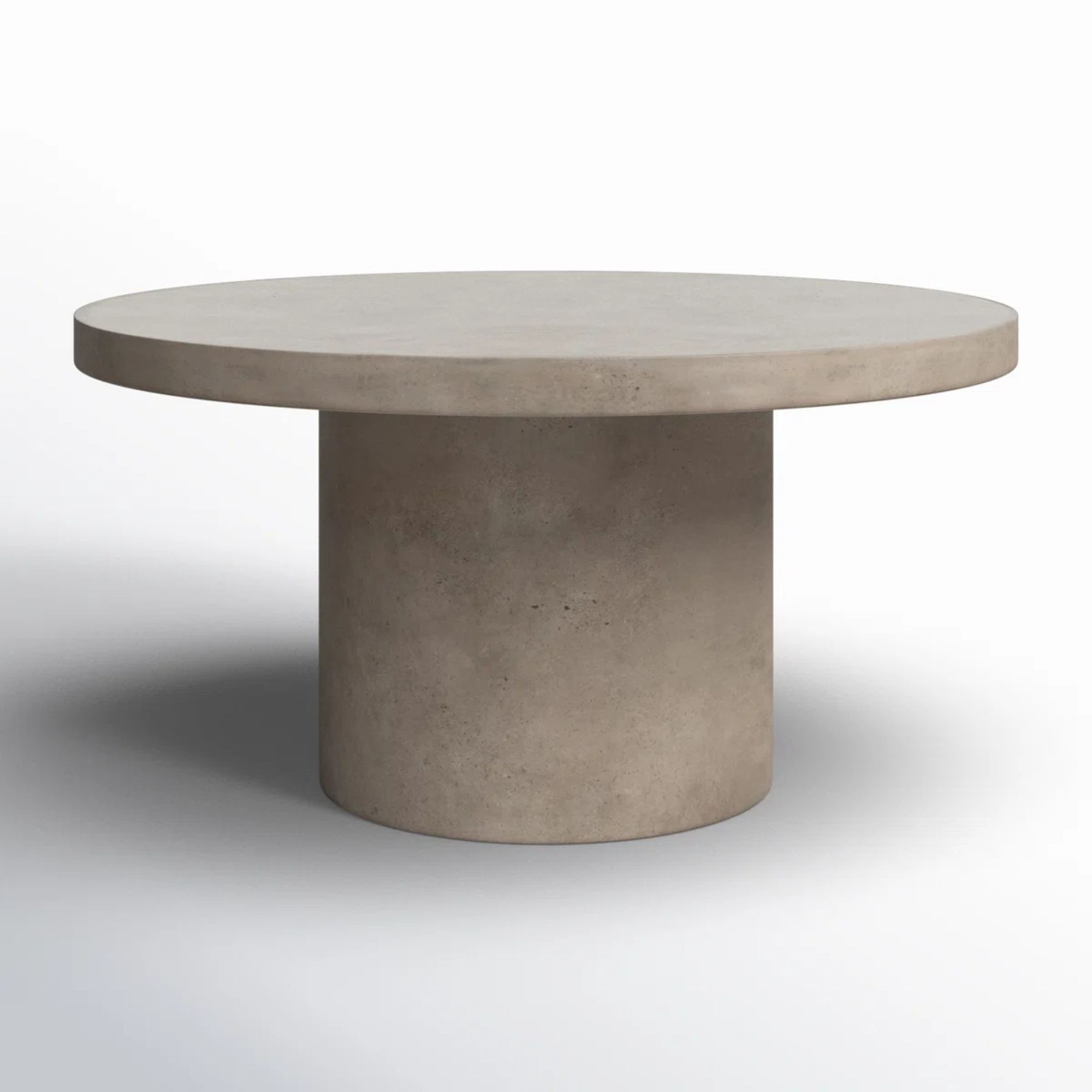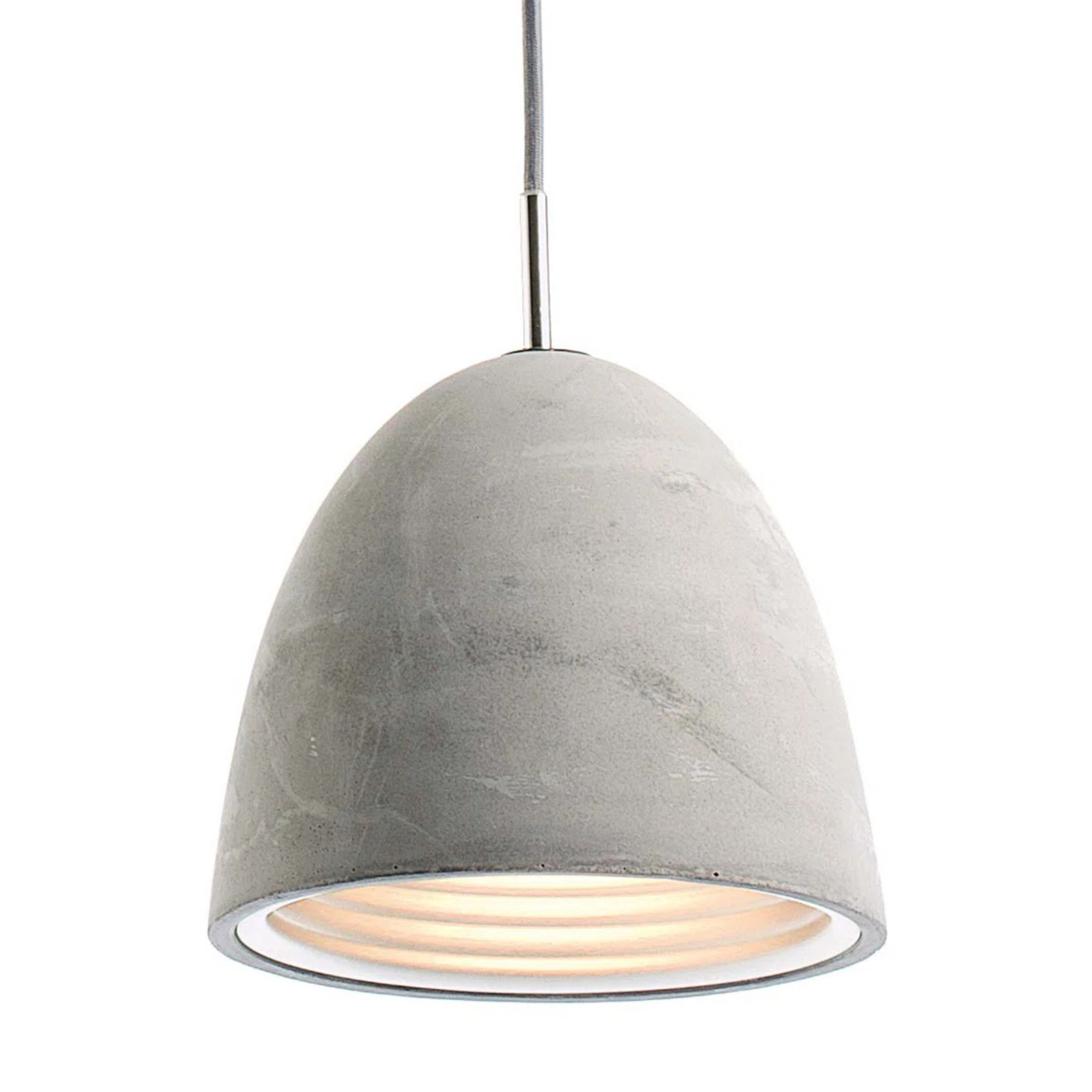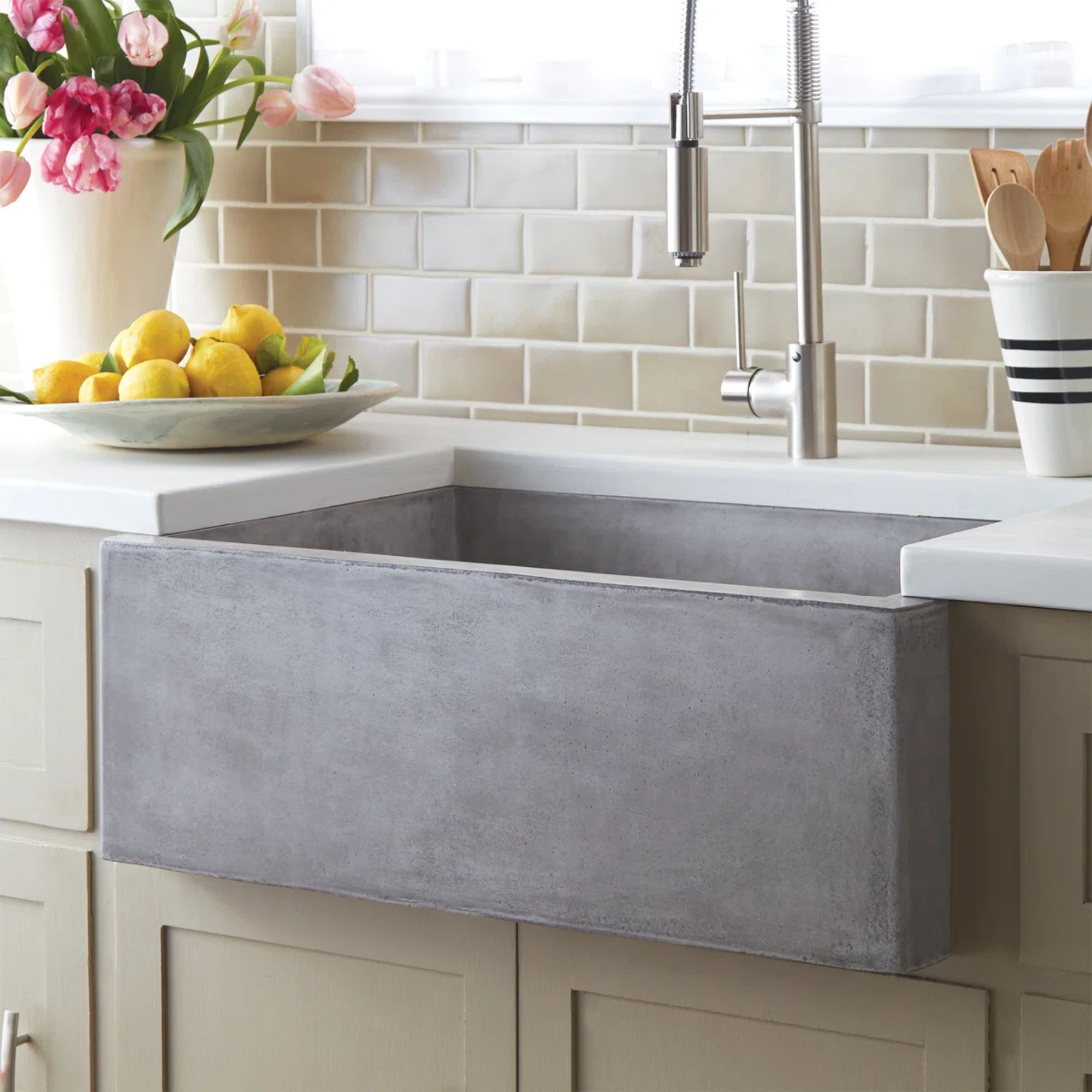As a Kitchen Editor who sees trends come and go as quickly as I can put pen to paper to write about them, I am admittedly a bit of a trends skeptic. When it comes to the kitchen, I always say to follow trends with caution; this is a space that has to last, and it works hard, so it needs to be practical too.
So when I started to see the emerging countertop trend for using concrete, I had to consult designers to dig a little deeper into whether this unexpected look is one worth investing in or ignoring.
They are striking, textured, and bring in an architectural detail that’s hard to achieve with other options. But your kitchen countertops need to be equal parts aesthetic and durable, so does concrete hit the mark? Is it one of the best countertop materials or just a fleeting trend?
I’ve turned to designers to find out everything you need to know about concrete kitchen countertops – and it turns out, they might be a stylish choice, but they perhaps aren’t the most practical. Here’s what they had to say.
What’s the appeal of concrete kitchen countertops?
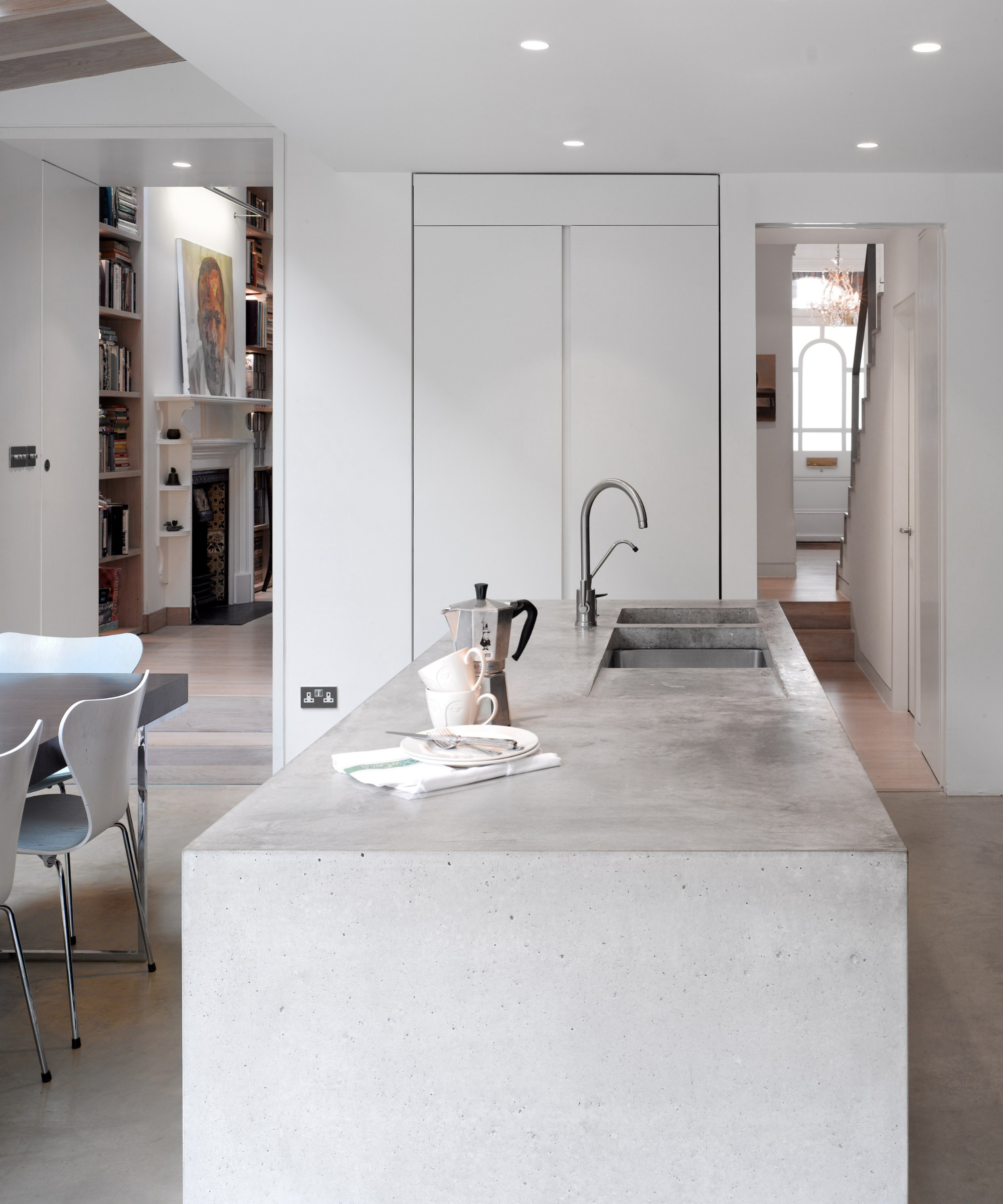
(Image credit: Platform 5)
Concrete is a far cry from the marbles and metallics that have proved popular in recent kitchen trends. Compared to these sleek, smooth surfaces, concrete countertops are quite the opposite, offering a rougher, more textured finish that adds a unique touch to kitchens.
However, it’s exactly why they are proving popular. ‘Concrete countertops appeal to many because they feel architectural. They bring a sculptural quality to the kitchen,’ says Steven Cooper, principal designer at Cooper Pacific.
‘They’re strong, weighty, and undeniably modern. There’s also a handmade element to them, and no two pours of concrete are ever quite the same, which gives the surface a bespoke, one-of-a-kind character.’
And they are also surprisingly versatile. While you might not see them in more traditional or cottage kitchens any time soon, they do work beautifully with a range of styles.
‘Concrete surfaces are making a strong comeback, bringing a rugged, brutalist edge to modern kitchens. Surprisingly versatile, they complement industrial lofts, minimalist Scandinavian spaces, and even serve as a striking alternative to marble in classic farmhouse designs,’ says Jonathan Stanley of Caesarstone.
‘I think their popularity speaks to a larger movement in design; the desire for raw, authentic materials. In a world where so much is polished and perfected, concrete offers an edgier, unfinished chic,’ adds Steven.
Are concrete kitchen countertops a practical choice?
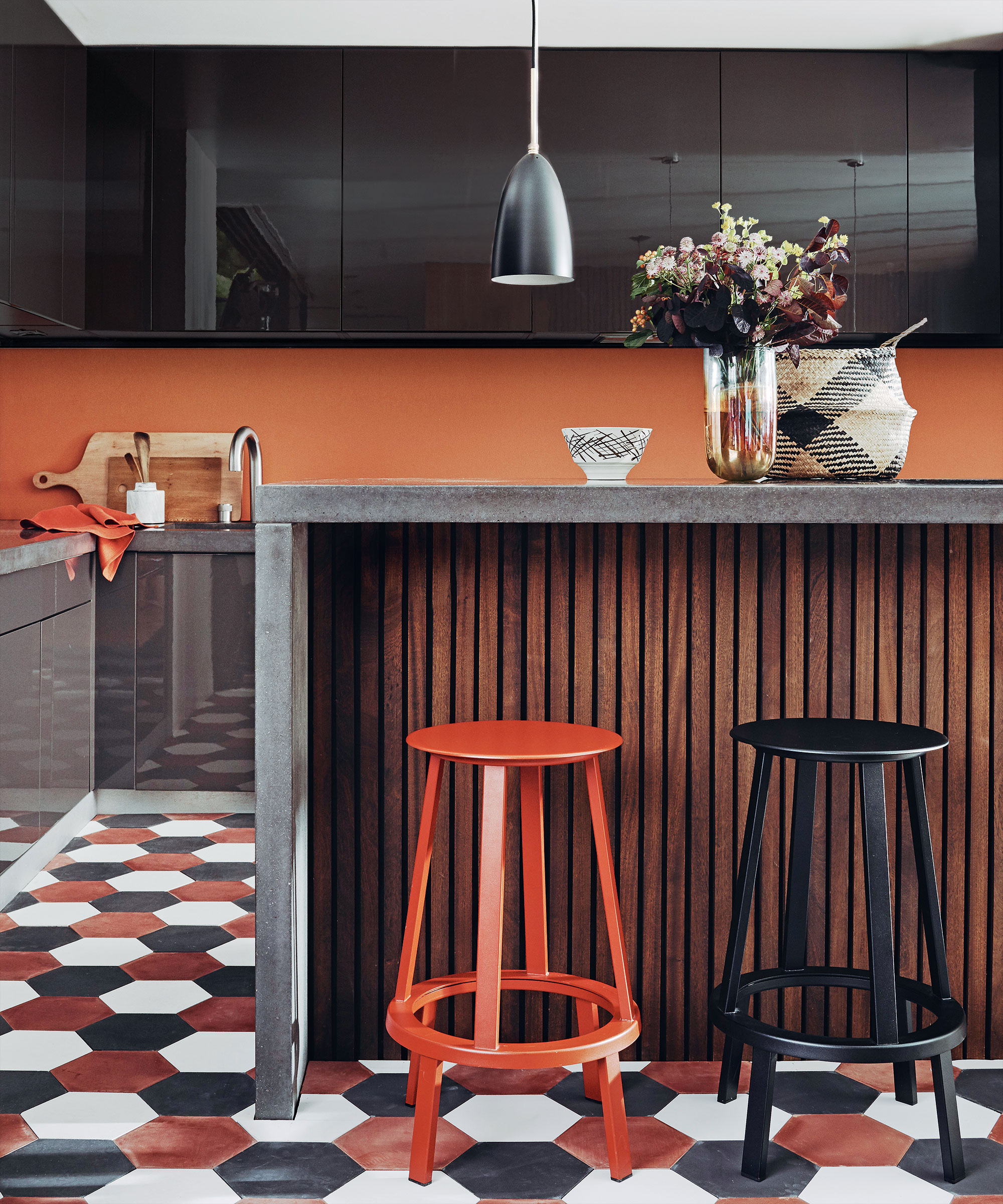
(Image credit: Future / Michael Sinclair)
There’s no denying that concrete kitchen countertops are a striking choice, and a statement material to add tactility and unique appeal to kitchen schemes. But they do fall short when it comes to durability.
‘While the look is timeless, poured concrete countertops come with practical drawbacks. Naturally porous, they can absorb everyday spills – encouraging bacteria growth and leaving behind stubborn stains from red wine, coffee, oils, and more. Even with sealing, they remain prone to scratches, require regular maintenance, and add to long-term costs,’ explains Jonathan.
‘I wouldn’t call concrete countertops practical. They demand sealing, they stain easily, and they can chip or crack; they aren’t forgiving in the way quartz or quartzite can be,’ adds Steven, who explains that concrete countertops aren’t the right choice for anyone who likes perfect countertops or for busy family kitchens.
‘Concrete is more about atmosphere than utility, it’s about creating a mood, not about withstanding every spill or scratch. For those who want ease and low maintenance, it’s not the right choice. It’s for those who see beauty in imperfection,’ adds Steven.
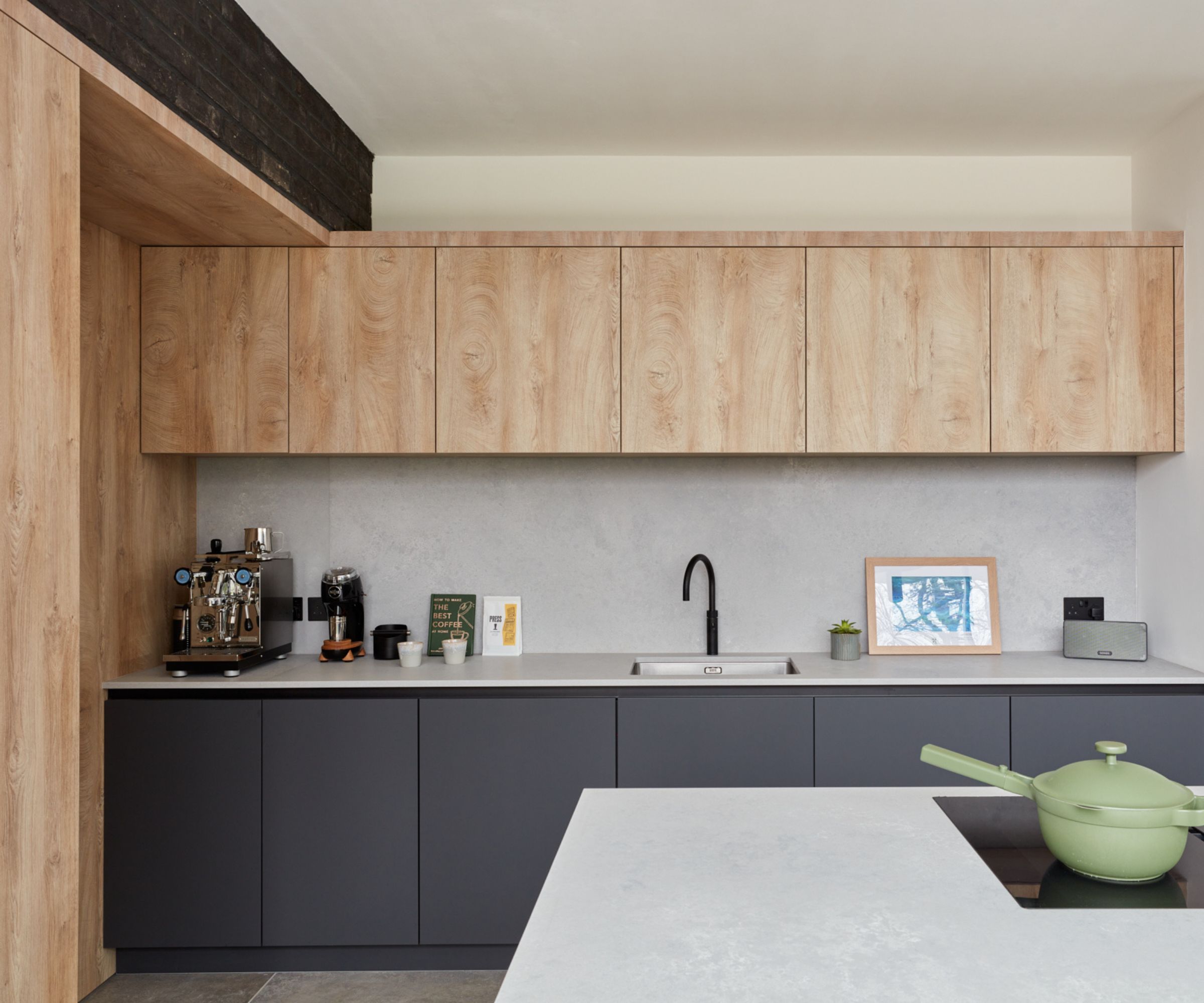
(Image credit: Caesarstone)
Whether or not concrete countertops are a good choice will depend entirely on your lifestyle and taste. If you like perfect, smooth countertops, they won’t be the right choice. But, similarly to marble countertops, if you like that natural aging, marking, and overall just aren’t too precious, they can be a characterful addition.
‘Homeowners should be prepared for maintenance and understand that concrete will change. It may crack slightly, develop stains, or darken in places. That’s part of its nature. If you want something perfect and uniform, it might not be the right fit. But if you appreciate character and individuality, it could be exactly what you’re looking for,’ adds Steven.
If, on the other hand, you don’t like countertops that stain or mark easily, there are some alternative options. ‘I recommend a concrete-inspired porcelain countertop or mineral countertop instead. With concrete-style engineered stone designs, you can achieve the raw, urban aesthetic you love while enjoying surfaces that are durable, low-maintenance, and future-proof,’ says Jonathan.
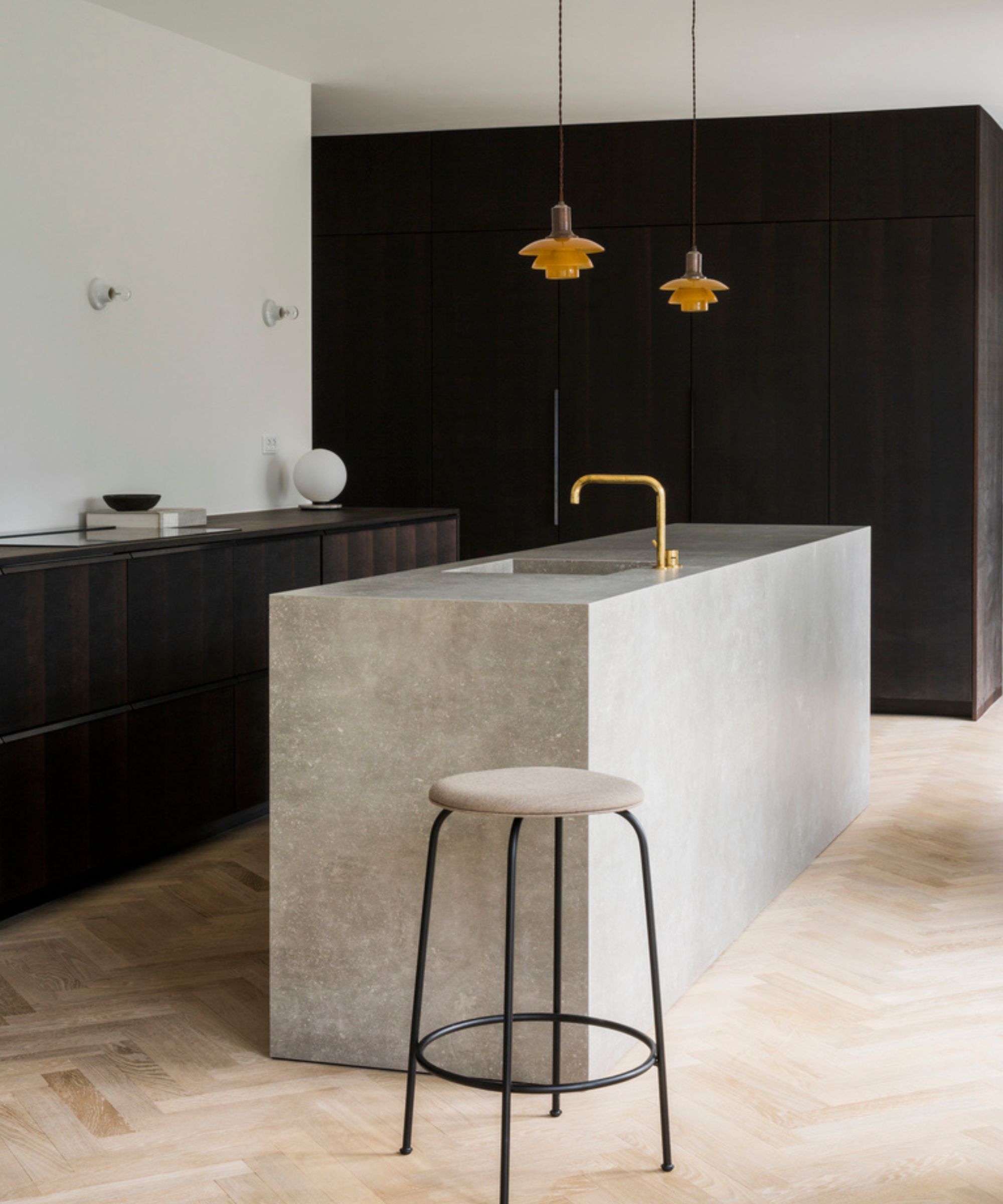
(Image credit: Norm Architects / Photography Jonas Bjerre-Poulsen)
If you do still love the appeal of concrete countertops and appreciate a material that ages over time, there are plenty of beautiful ways to design with and style them. A statement kitchen island is a popular choice, bringing an architectural feature at the heart of your space, and the rest of your countertops can then be made of a more durable material.
But it’s also about the colors and materials you pair concrete with in a kitchen. ‘Concrete on its own can feel stark, cool, even a bit severe, but the moment you introduce warm, organic wood, there’s a dialogue, one material grounds and the other softens,’ says Steven.
‘I especially love the way concrete interacts with lighter woods. Imagine dove-gray countertops against pale oak cabinets, but on the flip side, it can also be paired with the depth of walnut. Concrete gives the kitchen structure and presence, while wood brings the warmth that makes you want to stay.’
If concrete countertops aren’t an option for your kitchen, there are still plenty of ways to bring this more industrial material into your space. From furniture to decor, these are a few pieces that allow you to get the look without a kitchen remodel.
The verdict? Concrete kitchen countertops are not the most durable, but they do add a unique look and feel to a design. How you decorate kitchen counters in this material is key – mixing in warm wood details is the ideal for a timeless and inviting scheme.
But durability is important, so make sure you consider whether or not an easily damaged material is something you want to deal with, or if a smaller decorative concrete accent is a better option.


